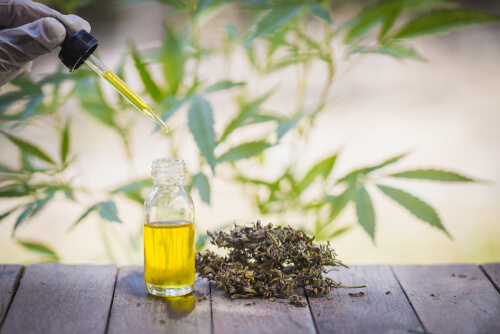
For the past few years, we are hearing the term CBD quite often. According to a survey conducted in the United States, the majority of Americans do not know about CBD. It is one of the cannabinoid compounds present in the cannabis plant. The reason why it is gaining so much popularity is because of its health benefits.
How Does CBD Help?
Cannabidiol, short for CBD, is proven to be an effective treatment for many of the health problems that affect humans as well as animals. Many studies show that CBD is an effective remedy for health disorders such as stress, anxiety, pain, epilepsy, nausea, insomnia, arthritis, multiple sclerosis, acne, psoriasis, and even Alzheimer’s disease. It is also used for alleviating the side effects of the cancer treatment
After the legalization of hemp-derived products in 2018, the CBD industry in the United State is growing exponentially. Experts are estimating that by 2020, the CBD market will hit $2.1 billion and the contribution of the hemp industry will be $450 million.
With the popularity of CBD continue to grow; the market will make billions of dollars in the coming years. In this article, we will discuss how CBD works on our body and its interaction with the human endocannabinoid system.
CBD And Endocannabinoid System
The endocannabinoid system in the human body is believed to be a network of neurotransmitters and cell receptors that are responsible for maintaining the homeostasis of the body. Though the cannabinoid receptors are spread throughout the human body, the majority of them are present in the central and peripheral nervous system, and also the immune system.
The endocannabinoid system stimulates and controls numerous body functions such as sleep, memory, immune response, mood, pain, fertility, temperature control, and appetites. ECS will release its natural cannabinoids to restore the balance whenever something happens with those body functions.
The CBD interacts with CB1 and CB2 cannabinoid receptors of the endocannabinoid system. But this interaction is not direct. It stimulates the endocannabinoid system to produce natural cannabinoids and also CBD inhibits the FAAH enzyme to slow the breakdown of these cannabinoids so that they can stay longer in your body.
The interaction of CBD with the CB1 cannabinoid receptors is very essential for counteracting the effects of THC, the psychoactive compound of the cannabis plant. The binding of CBD in the CB1 receptors results in modifying the way THC interacts with the receptor thereby reducing its effect. CB2 cannabinoid receptors are responsible for the inflammation in our bodies. CBD interacts with the CB2 cannabinoid receptors and weakens its ability to cause inflammations.

